Cineworld: 'My job doesn't feel like work'
- Published
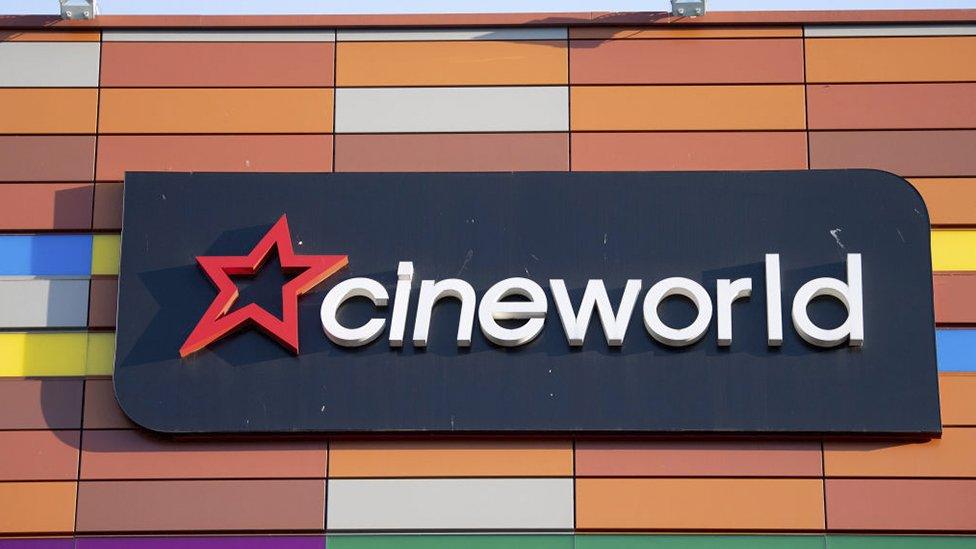
Working at Cineworld "sometimes just doesn't feel like work," says an employee who's just heard the cinema chain is temporarily shutting down.
She hasn't been told what will happen to her job but the company employs about 5,500 people in the UK.
The worker, who wants to stay anonymous, is a manager at a Cineworld in the north of England.
"Every single cinema I've worked at, it's a family," she says.

No Time To Die's original release date was last year - it's had several delays
The worker says she heard the news "just like everybody else did - via the press."
It came as "a little bit of a shock, but not a surprise, because it has been been tough.
"Since we reopened [in July] the numbers haven't been what they were pre-pandemic.
"Part of the excitement of coming to the cinema is to see something new... and there is nothing new."
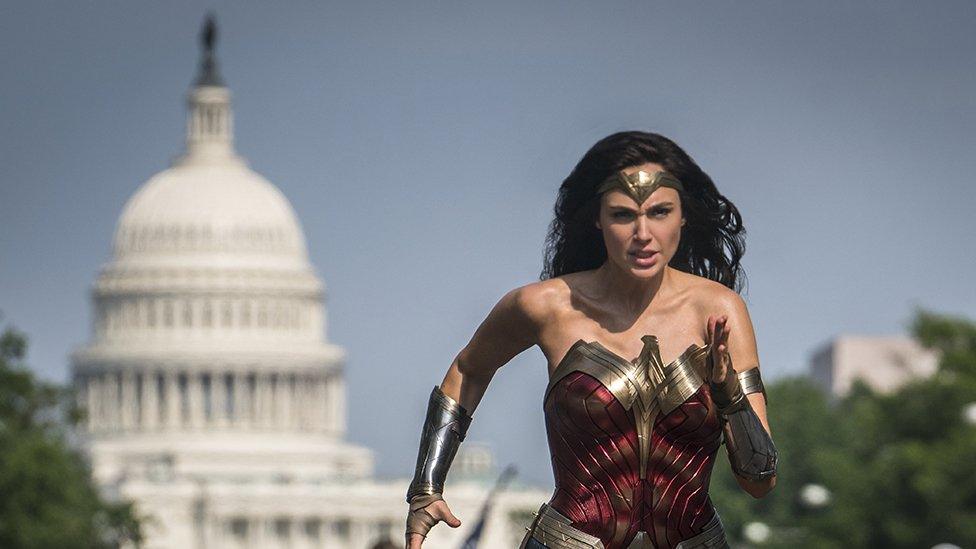
Wonder Woman 1984 is one of the many films to be delayed until next year
Cinemas - along with other event spaces like theatres and live music venues - have had a tough time since lockdown.
Cineworld made the announcement a few days after the new James Bond film, No Time To Die, was delayed again until next Easter.
That film was expected to bring in a lot of customers.
But the truth is cinemas were struggling even before that announcement.
A number of big releases have been delayed, including Black Widow, Wonder Woman 1984 and Fast and Furious 9.
And Disney released its $200m (£154m) blockbuster Mulan online instead of in theatres.
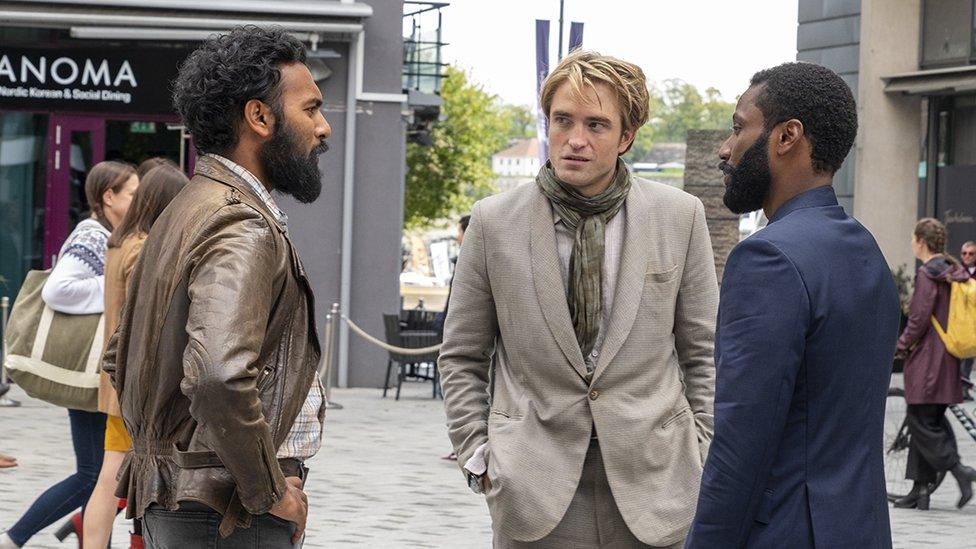
Tenet has made £237m at the box office so far - but that's not enough to recoup its budget
Sci-fi epic Tenet is the biggest film to get a cinema release - which did give cinema workers hope.
"When Tenet came out, it was fantastic. And a lot of people came to see that and are still coming to see that today," says the Cineworld employee.
"It did give me hope you know that this isn't forever."
However, the film's so far failed to make back its big budget - partly because of Covid restrictions in the US.
Cineworld is not the only cinema to have made cuts.
Odeon says about a quarter of its 120 cinemas will only be open on weekends because of a lack of customers.
It could have knock-on effects for other businesses, too.
Many cinemas attract customers who then go for food or drinks nearby afterwards.
"We are part of a kind of entertainment facility, we have ten-pin bowling, a casino and multiple restaurants," says the Cineworld worker.
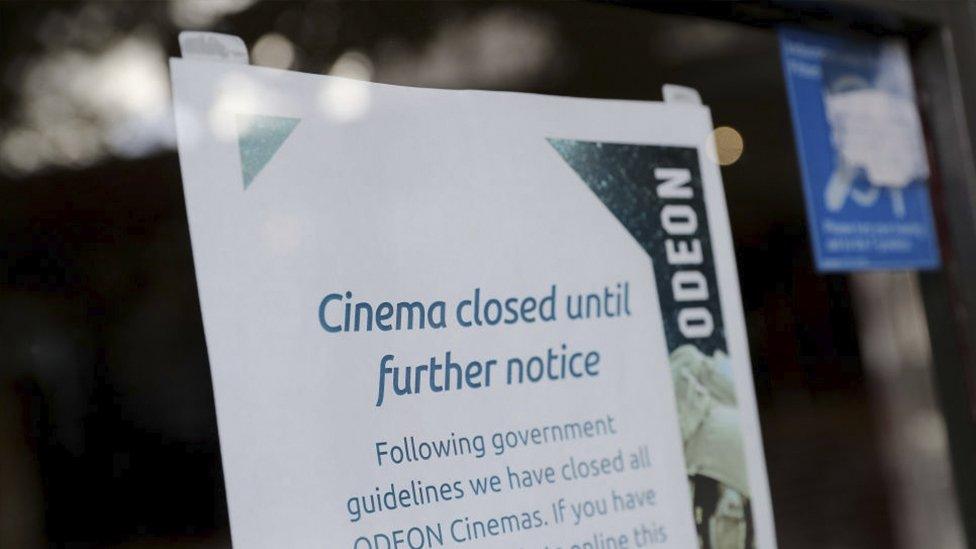
Odeon cinemas have been affected by a lack of customers
Hannah Aylett, 27, works in a cocktail bar next to Cineworld in Loughborough.
"A fair bit of our weekday evening trade comes from people having a few cocktails and a bit of food, both before and after going to the cinema," she tells Newsbeat.
"It's really hard to say at the moment, but it does make me nervous for the future of hospitality at the moment."
Why are cinemas so important?
One person who knows the importance of having a healthy film industry is Steven Ryder from the educational film charity Into Film.
Steven helps pick films which fit in with the curriculum to screen to schools.
"Usually, we do focus on the big releases, but at the moment, there's been less and less of those," he says.
He says his job shows him "just how powerful cinema is," adding: "Cinema is, at its heart, a collective experience.
"We get to sit in a room with people and experience a window to the world - or this dream - all at the same time."
That's been missing during the pandemic - with packed-out cinema screenings on hold right now.
But, Steven says, there's still plenty on offer in cinemas.
"The more we tell people in the media that it's not worth going to the cinema until James Bond is out, the more we're missing the point of what cinemas should be."
He's been to see a few low-budget and indie movies since cinemas reopened, and while he admits it's different to usual, he says it's still worth it.
"The film is still the film, it's still amazing to see on that giant screen and, you know, in a dark room with other people. And that's the power of cinema."
Additional reporting by Annabel Rackham.


Follow Newsbeat on Instagram, external, Facebook, external, Twitter, external and YouTube, external.
Listen to Newsbeat live at 12:45 and 17:45 weekdays - or listen back here.
- Published5 October 2020
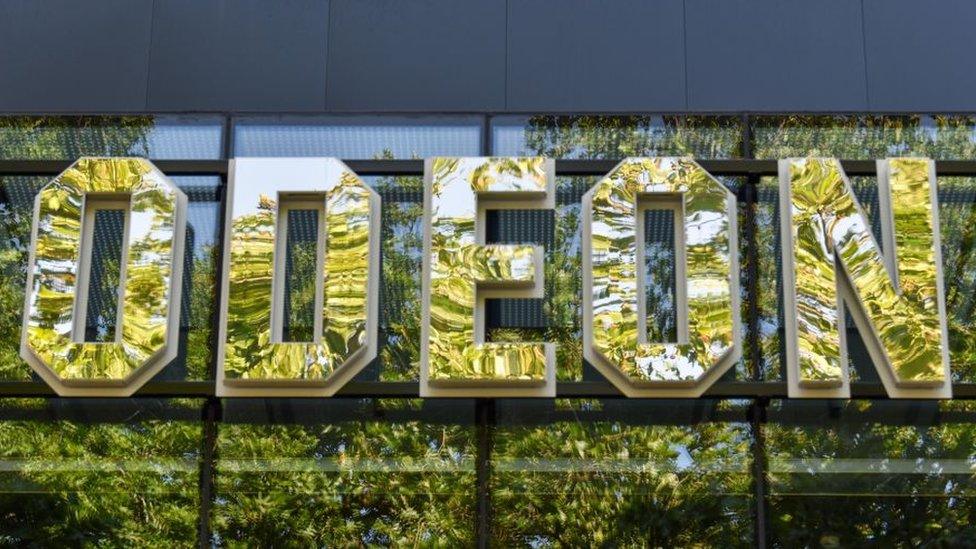
- Published4 October 2020
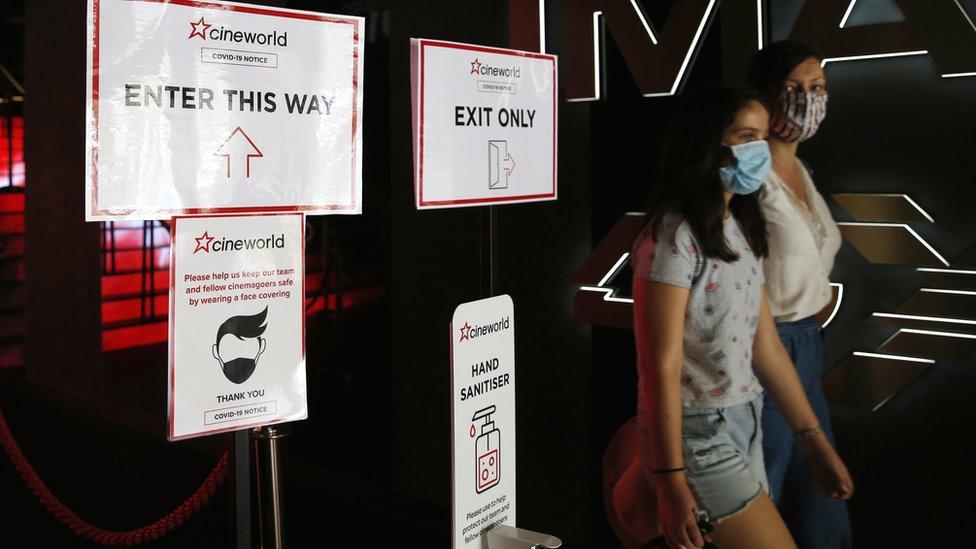
- Published3 October 2020
